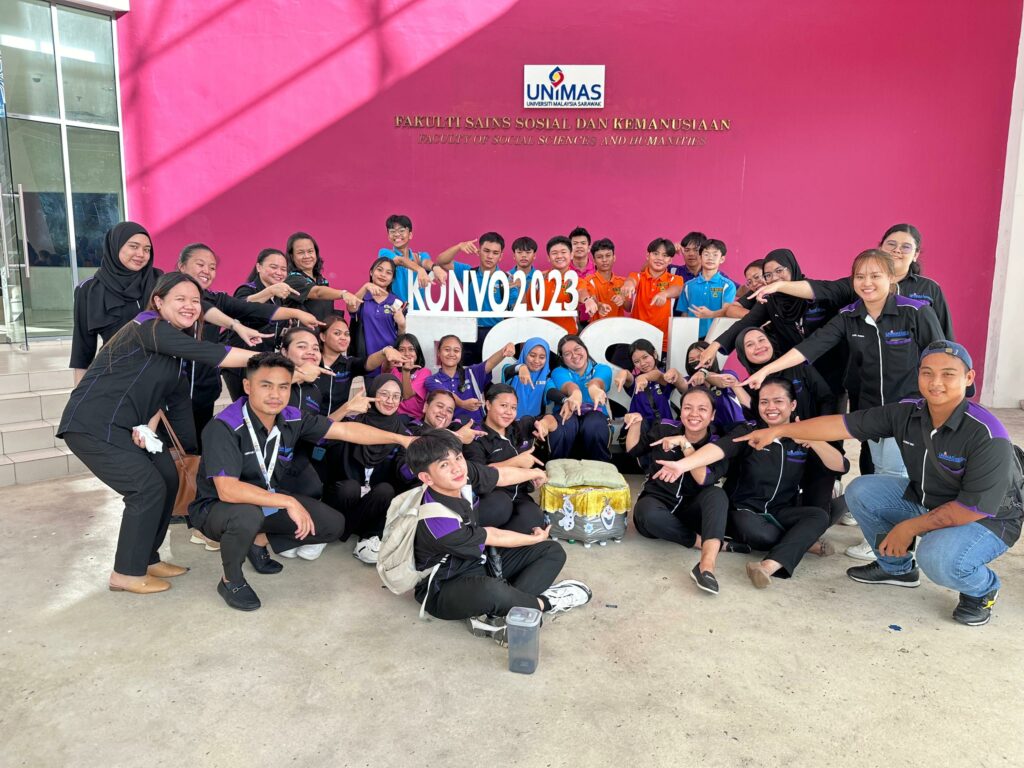by: Amarya Gunim ak Runjin & Dr Haslina Hashim
Students from the Faculty of Social Sciences and Humanities (FSSH), Universiti Malaysia Sarawak (UNIMAS) are doing what they can do to reduce mismanaged plastic waste through the “Reduce Plastic, Make Fantastic Ecobricks!” project involving five secondary schools around Kota Samarahan and Kuching. The participating schools are SMK Kota Samarahan, SMK Muara Tuang, SMK Sg. Tapang, SMK Wira Penrissen and SMK Siburan. This project, carried out in collaboration with the Natural Resources and Environmental Board (NREB) Sarawak, is part of the Faculty’s EXCEL CARE (Community Resilience Experiential Learning) activities. It is done through the collaboration and active participation of Kelab Pencinta Alam Sekitar (PALS) of the respective schools.
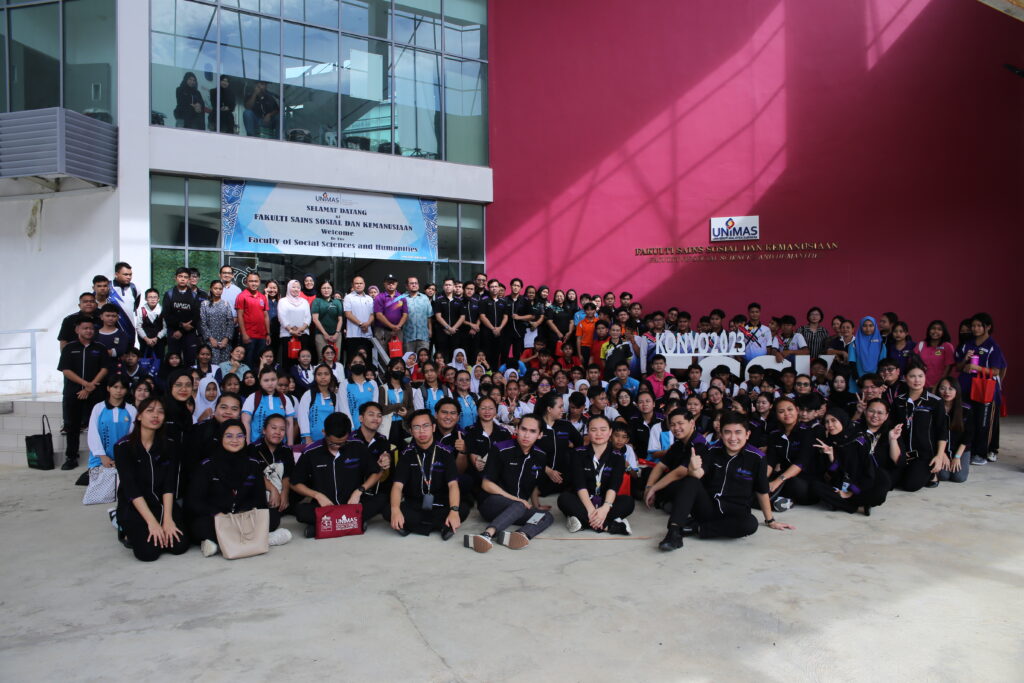
In this project, UNIMAS students are required to work with the schools to run a project on ecobrick that is aimed to promote sustainable plastic waste management. The objectives of the program are to raise awareness on the consequences of mismanaged plastic waste, educate participants the ways in which they can convert plastic wastes into ecobricks and sensitize fellow participants about the potentials of ecobricks in everyday life.
Ecobricks are bottles packed with single-use plastic waste that is clean and dry. Single-use plastic waste that is good to make ecobricks include plastic wrappers, plastic packaging, straws, utensils, plastic cups and more. To make an ecobrick, the plastic waste is cut into smaller pieces and pressed carefully into the bottle using a long stick starting from the base of the bottle and all the way up. The aim is to obtain a solid ecobrick. A good quality ecobrick made using a plastic bottle sized 1.5-liter should weigh at least 500 grams and this is equivalent to 70 – 100 pieces of plastic wrappers which otherwise would have gone into the landfill and find their way into water bodies. Because plastic wrappers (made of LDPE) are very difficult to recycle and take about 500 to 1000 years to decompose, they are very harmful to the environment and wildlife. As such, making ecobricks is one of the practical measures to repurpose LDPE plastic waste.
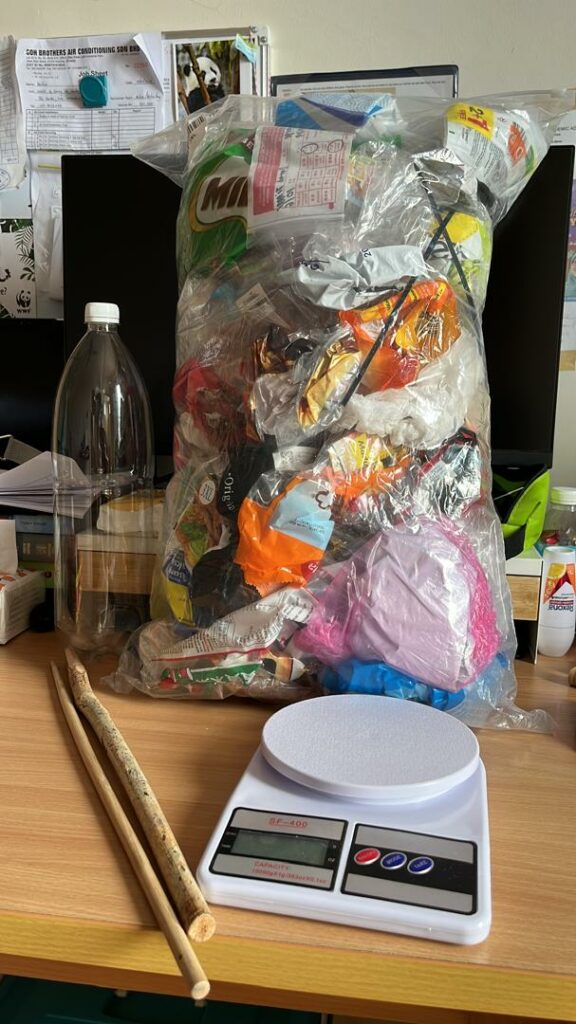
This project involved a series of workshops meant to train and equip the members of Kelab PALS on how to make ecobrick. At the first and second workshop, UNIMAS students (of Year 2, Development Planning and Management program from the Faculty of Social Sciences and Humanities) in a group of 20 visited the schools assigned to them. The rationale behind this project, and the ecobrick concept was introduced to the secondary school students along with demonstrations and hands-on activity during the workshops. The school students were taught how to properly make an ecobrick which includes choosing suitable plastic waste and stuffing them into clean and dry bottles for optimum compactness. These workshops were monitored by Kelab PALS teacher advisors who also acted as facilitators during the workshops. The workshops took place between May and June 2024. Each school was tasked to make 19 ecobricks.


On 22nd June 2024, the project ended with a closed competition between the schools organized at Faculty of Social Sciences and Humanities. This event involved a total of 100 students, and they were tasked to build a stool using the 19 ecobricks that they had prepared during the earlier workshops. The completed stools were assessed using the following criteria: strength and durability, stability, creativity and practicality of the design. SMK Wira Penrissen scored the first place, while SMK Muara Tuang and SMK Sg Tapang bagged the second and third place, respectively. SMK Kota Samarahan and SMK Siburan took home the consolation prize. The prizes, in the form of cash money and reusable straws, were fully sponsored by NREB.

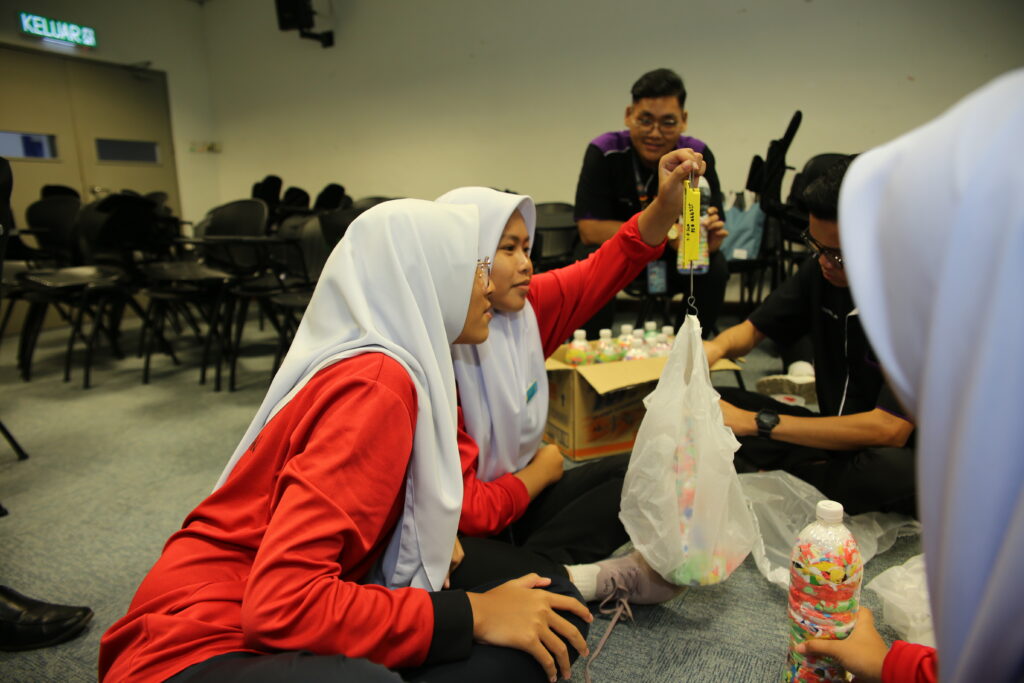
Representatives from the Kota Samarahan Municipal Council, Mr. Gustian bin Haji Durani (Pemangku Setiausaha Perbandaran) and Mr. Desmond Leo Lee Pheng (Pegawai Kesihatan Persekitaran), attended the ceremony, showing their continuous support for the program. In his speech, Mr. Gustian applauded the idea behind ecobrick that is in line with MPKS’s aim to turn Kota Samarahan into a low-carbon city. The council has planned numerous activities and engagements involving the community to create a greener, healthier and more sustainable Kota Samarahan.
“Reduce Plastic, Make Fantastic Ecobricks!” goes beyond just crafting furniture. This project achieves a sense of environmental consciousness for those involved. The project has demonstrated the power of ecobricks as a sustainable solution by diverting plastic waste away from landfills and turning it into something useful for daily use. Not only that, the active participation of UNIMAS, NREB and the respective schools have contributed towards creating a feeling of belonging to the ecobrick project, thus making it a true partnership effort.
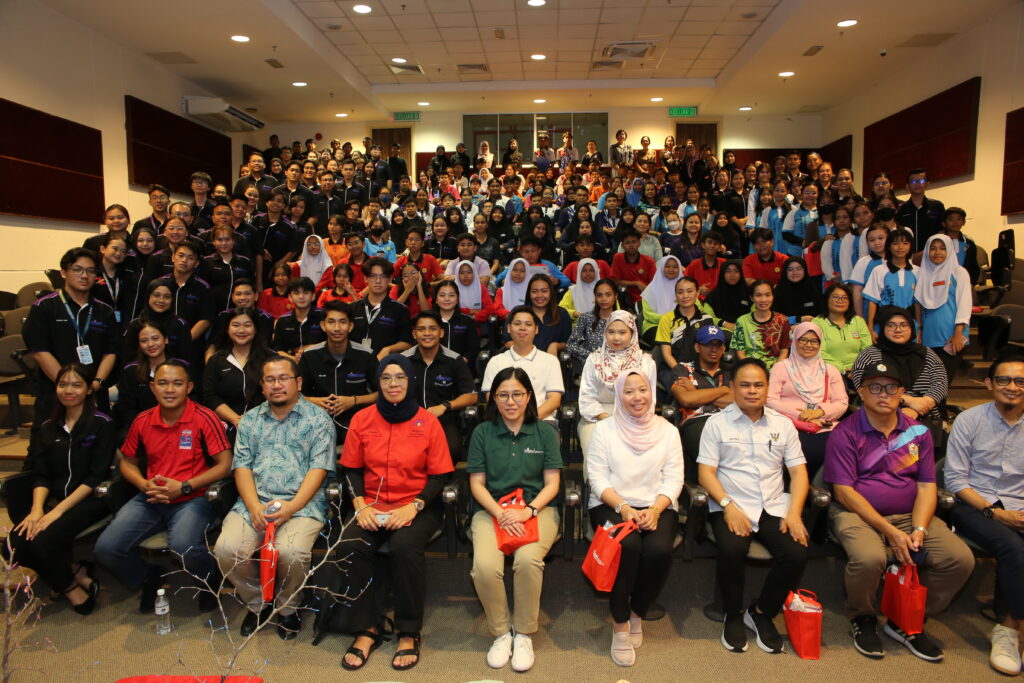
Second row and beyond: School teachers, UNIMAS students and school students.


